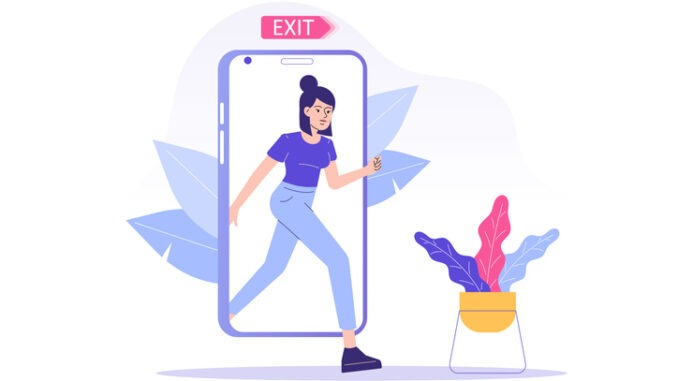
Patrick Bailey explores the pros and cons of technology and explains why taking a break from our digital devices could be the key to a better lifestyle
CREDIT: This is an edited version of an article that originally appeared on Calmer
Although they can be a source of distraction at times, few people can deny that digital devices have enormous benefits. They allow us to stay connected with our loved ones and colleagues, as well as enabling us to continue working and earning a pay check.
The downside to using digital devices
However, it is a growing concern that we spend more time online than would perhaps be advisable. The health concern here is heightened when you consider the reality that many of us will stare at our smartphone or computer screens for most of the day, at work or on breaks, and then will potentially continue to do so when we finish work, even while eating or talking with others.
Some professionals consider this to be a digital addiction and letting go of our digital devices has been commonly referred to as a digital detox.
Even if you do not feel you have an addiction to your device, there are still some potentially harmful outcomes that are important to be aware of, such as:
- Blue light: The light from your electronic devices can disrupt the quality and quantity of your sleep or circadian rhythm, and can potentially even increase the chances of obesity, diabetes, and heart disease.
- Computer vision syndrome: Like carpal tunnel syndrome of the eyes, CVS is caused by repetitive eye movements – focusing and refocusing, glancing back and forth between the computer and a book or notes – and this puts a physical strain on your eye muscles.
- Digital device eye strain: For some reason, people blink less than half as often while staring at electronic screens, which means they are not well hydrated, can get dry, and cause eye strain. The glare, flickering, and contrast can also cause issues.
The social etiquette
Then there are the social aspects. Do you think it is rude to be staring at your phone while talking or dining with others? In some contexts, it could come across as though you are not paying attention, that you’re half-listening or that whatever is on your screen is more important.
So, what would it mean to you to go screenless for a day, week, or month? A digital diet, if not a detox?
The benefits of a digital diet
Increased focus: Unfortunately, multitasking may be a myth, and the reality is that we’re predisposed by evolution to shifting focus from one task to another quickly. Single tasking may increase productivity, save time, and improve relationships.
Better sleep: Using any blue light-emitting device (even a TV) right before going to bed can lead to you having a restless sleep. Researchers suggest that turning off all devices at least one hour earlier, leaving the smartphone out of the bedroom entirely and reading a physical book before going to sleep can aid a more restful night of quality sleep. After a week, most people report being happier.
Extra time: We average about 24 hours per week on our devices, and arguably a sizable fraction of that time is spent down the rabbit hole, following unintended tangents.
The result
To sum it up, a digital detox could give you reduced stress and anxiety and an improved quality of life.
If you sleep better, feel more productive, have more free time and nurture your relationships, you could start to see a real tangible difference in your personal and professional life, as well as your overall wellbeing.
Of course, it’s important to be realistic, and everyone’s circumstances are different. So have a think about what time you could allocate each week to spending away from your devices – start small and go from there. What other activities, joys and healthy habits would you like to dedicate more time to? After all, time is our most precious commodity.


Be the first to comment